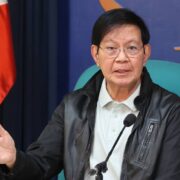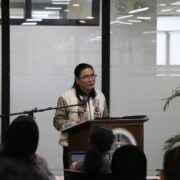When giants trample on the law

Recent events in the Middle East and the West Philippine Sea underscore a harsh truth: international law is only sacred when it serves the interests of the powerful. The attacks by the United States and Israel on Iran, and China’s continued harassment of Filipino vessels in Philippine waters reveal that those who helped build the international legal system now pick and choose when to follow it.
As a Filipino, I feel deep frustration watching these power plays unfold. Ordinary people, not policymakers or generals, are the ones who suffer. Countries like ours are left to navigate the wreckage of a broken global order.
Middle East strikes. United Nations Secretary General António Guterres described the US strikes on Iran as “a direct threat to international peace and security” and warned of a conflict that could “rapidly get out of control, with catastrophic consequences.” He called on all states to de-escalate and uphold their obligations under the UN Charter. In a Security Council session, he added, “There is no military solution. The only path forward is diplomacy. The only hope is peace.”
The legal framework is clear. Article 2(4) of the UN Charter prohibits the use of force against the territorial integrity or political independence of any state. The only lawful exception is self-defense under Article 51, which applies only if an armed attack occurs and must be reported to the Security Council.
Yet the recent strikes sidestepped both legal justification and multilateral consultation. Once again, civilians are left to absorb the consequences.
China’s selective advocacy. While condemning US and Israeli actions, China has called for de-escalation and respect for sovereignty. China’s UN Ambassador calls on parties to “abide by international law and curb the impulse to use force.” Beijing frames itself as a defender of international law, but only when it suits its interests.
What credibility does China have when it continues to harass Filipino fishermen and resupply missions in our waters? Recent actions by Chinese coast guard vessels, including high-pressure water cannon attacks near Panatag (Scarborough) Shoal, obstructed supply efforts for Filipino fishermen. China also continues to reject the 2016 arbitral tribunal ruling that favored the Philippines.
These actions show China’s selective reading of international law. It condemns violations abroad while committing them closer to home.
PH caught in the middle. Where does this leave the Philippines? We are not mere observers. Our fishers are being pushed out of traditional fishing grounds. Our sovereignty is repeatedly challenged. Our leaders are placed in the difficult position of responding to two major powers that both claim to uphold the law while frequently violating it. This reflects the realist view of global politics: “the strong do what they can and the weak suffer what they must.”
This is not just a geopolitical game. It is a human story of disruption and loss. I see it in the grief of families mourning missile strikes in the Middle East, and in the eyes of Filipino fishermen in Palawan and Zambales, dodging foreign ships just to fish. These people are casualties of a world that too often ignores the rules it claims to live by.
Principled foreign policy. International law cannot survive if it is applied selectively. When powerful countries trample on established norms, they undermine the institutions meant to prevent war and protect the vulnerable.
For the Philippines, our strength lies not in force but in principle. We must stand firmly for the rule of law—whether confronting China in the West Philippine Sea or responding to unlawful strikes elsewhere. We must continue working with Association of Southeast Asian Nations, uphold the 1982 United Nations Convention on the Law of the Sea, and assert the 2016 arbitral ruling not as a matter of pride, but of national interest and survival.
We must also speak out, with moral consistency, against all violations of international law, regardless of the actor. Neutrality should not mean silence. If we fail to defend the rules fairly, we risk living in a world governed not by justice, but by might. Failing to speak up today may cost us our voice when it matters tomorrow.
—————-
Ivy Ganadillo is a Ph.D. candidate in international relations based in South Korea and is a nonresident fellow at the Indo-Pacific Studies Center (IPSC). Her research centers on maritime security, international law, and East Asian geopolitics.

















Can AI do the work of civil servants?